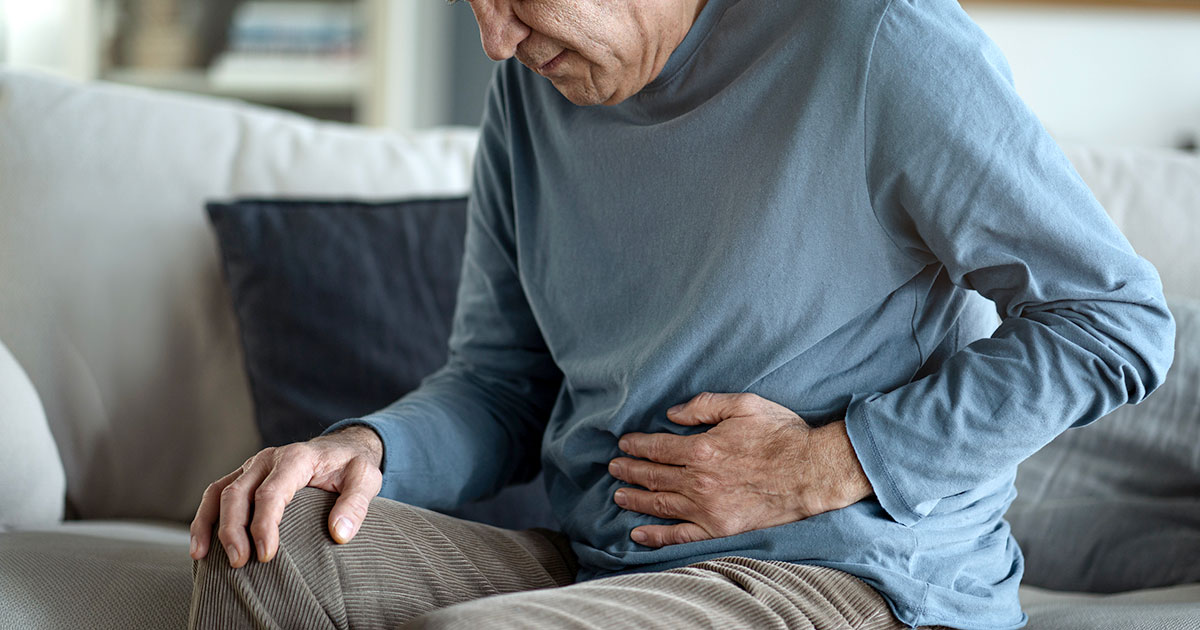
Chemotherapy’s ability to help treat cancer is well documented. So, unfortunately, are its often-difficult side effects.
Most chemotherapy drugs work by targeting cells in the body that grow quickly—that includes cancer cells. But it also includes immune cells, hair follicle cells and those in the digestive system.
Over time, researchers have developed newer chemotherapy drugs that target specific cancers with fewer side effects. While not everyone experiences side effects from chemotherapy, for patients who do experience them they may be difficult to tolerate.
“Chemotherapy can be hard on the body because it’s intended to be hard on cancer,” says Lora Reeves, MS, RD, LD, Clinical Oncology Dietitian, City of Hope® Cancer Center Atlanta. “But it’s also hard on other cells.”
Digestive system side effects are especially challenging because they may hinder a patient’s ability to stay on a treatment regimen. If a patient experiences severe diarrhea or weight loss, he or she may have to stop treatments temporarily in order to stabilize and regain strength. It’s important to assess a patient’s risk for nutrition-related side effects before treatment starts. It is equally important for patients to be vigilant in reaching out to their care team when side effects develop.
That’s why it’s important to assess a patient’s risk for digestive system side effects before treatment starts. Patients may be assessed by a nurse navigator for any nutritional risks they may have and, if necessary, referred for a nutritional assessment. Patients also should be vigilant when side effects develop and not hesitate to contact their care team.
“Each appointment looks very different based on what that patient needs,” says Jayla Thurman, RDN, LD, Clinical Oncology Dietitian at City of Hope Cancer Center Atlanta. “One thing I always recommend is for patients to advocate for themselves. If you’re losing weight, if you can’t eat, if you’re vomiting, those are things you should bring to the attention of the medical oncologist because there are things that can be done.”
In this article, we’ll focus specifically on common chemotherapy side effects that affect the digestive system and offer tips to help ease them so patients can get adequate nutrition and stay strong.
This article will address:
- What to eat when you’re nauseated
- What to eat when you have diarrhea or constipation
- What to eat when you have mouth ulcers
- Managing taste changes
- What to eat when you have no appetite
- What to eat when you’re dehydrated
If you’ve been diagnosed with cancer and are interested in a second opinion on your diagnosis and treatment plan, call us or chat online with a member of our team.
What to eat when you’re nauseated
Nausea is easier to prevent than to stop once it takes hold, so patients should make sure they are taking nausea medicine, experts say.
Thurman says she reinforces prescribed anti-nausea medicine with patients, but also says sipping ginger ale or ginger candies may be helpful.
Reeves often recommends patients eat smaller meals more frequently—maybe five or six times a day—rather than the typical three meals a day, if they have a decreased appetite, but this may also be helpful if large meals make nausea worse.
For patients with decreased appetite and nausea, “we’ll stress getting enough calories and protein at each meal,” Reeves says. This may mean not drinking a lot of liquid with meals, which may make patients feel full, but may not be providing the nutrient-rich calories they need from a meal. Drinking liquids between meals may be better for patients experiencing nausea.
Other tips to help alleviate nausea in addition to any prescribed anti-nausea medications:
- Eat food at room temperature
- Stay hydrated by sipping cool, clear liquids in between meals
- Keep a little something in the stomach at all times
- Avoid strong odors
- Avoid fatty and spicy foods
- Suck on candies with ginger or mint or on frozen fruit like grapes, watermelon or cherries
- Try ginger chews, ginger or peppermint teas in between meals
- Ask your care team about acupressure bracelets
- Don’t lie down immediately after eating
What to eat when you have diarrhea or constipation
It is important to know that there are two types of fibers in foods. Insoluble fiber may help with constipation, but could aggravate diarrhea, while soluble fiber may help both constipation and diarrhea. Cancer treatments may bring a variety of digestive system issues, including diarrhea, constipation, or both that may be mitigated by the following:
- Foods containing probiotics like yogurt may help with diarrhea and constipation
- Foods containing soluble fiber like oats and white rice also may help with diarrhea
- Drinking plenty of fluids and staying well-hydrated can help mitigate constipation and eating foods with both soluble and insoluble fiber may help get your bowels moving regularly
- Drinking plenty of fluids and staying well-hydrated can help mitigate constipation and eating foods with both soluble and insoluble fiber may help get your bowels moving regularly
- A dietitian also may suggest a daily fiber supplement for both diarrhea and constipation
What to eat when you have mouth ulcers
Doctors may prescribe a mouth rinse to help ease pain and discomfort in patients bothered by mouth sores—called mucositis. The rinse is intended not only to address the sores, but to be able to help patients eat regularly.
Other tips to alleviate the discomfort of mouth sores:
- Eat food cool or at room temperature
- Avoid acidic, spicy or other strongly flavored food
- Be careful with dry or sharp foods like crackers or chips
- Suck on popsicles, frozen fruit or ice chips if you can tolerant cold
- Avoid fruit, vegetables or jams with small seeds
- Do not use alcohol or tobacco
- Avoid carbonated drinks
- Don’t use mouthwashes containing alcohol
- Stick to moist, bland foods including oatmeal, pudding and custards
Managing taste changes
Chemotherapy may alter the cells in the mouth, creating new taste sensations, which may not be pleasant. It may create a metallic taste in the mouth or change how foods taste.
Cancer patients can mask these taste changes or counteract them by:
- Using plastic or wooden utensils instead of metal
- Avoiding canned food if things taste metallic to you
- Brushing teeth, tongue and gums regularly and using a mouth rinse may help minimize bad taste
- Baking soda salt water rinses before eating may help mitigate taste changes (4 cups water mixed with ¾ tsp salt and 1 tsp baking soda)
- Drinking liquids from plastic cups with lids to help neutralize smells
- Sucking on mints or fruit-flavored candies
- Adding balsamic vinegar or a squeeze of lemon or lime to foods that may seem too sweet
- Adding herbs like tarragon, basil, rosemary or those that may make some foods more tasty
- Sucking on zinc lozenges before meals and snacks
What to eat when you have no appetite
Who wants to eat when dealing with vomiting, diarrhea or mouth sores? Chemotherapy patients also may find the once-appetizing aromas of certain foods to be unpleasant or even nauseating.
Still, it’s important for chemotherapy patients to eat what they can when they can. And what they eat should be nutrient-dense in order to meet calorie, protein and other nutrient needs.
Here are some tips for people receiving chemotherapy dealing with a loss of appetite:
- Set a time every several hours to eat a small meal or hearty snack.
- Avoid filling up on beverages like coffee, tea or diet soda instead of something more nutritious
- Sip nutritious soups or broths, smoothies, or recommended oral nutritional supplements
- Make protein-rich foods like eggs, nuts or chicken a priority at every meal
- Add mild cheeses to any dish enhanced by them
- For dessert, have pudding made with whole milk or another milk substitute
- Toss cooked vegetables in olive oil
- Cook and prepare healthful meals and snacks when time and energy permit, so something is always ready to eat
What to eat when you’re dehydrated
Dehydration may develop quickly in chemotherapy patients dealing with vomiting or diarrhea. And while even water may seem unpalatable, it’s important for patients to drink throughout the day to stay hydrated.
Some tips for doing so:
- Carry a water bottle and sip regularly throughout the day
- Make plain water more appealing with a squeeze of lemon or lime, cucumber slices or fruit juice
- Try non-caffeinated teas like chamomile or hibiscus
- Eat fluid-rich foods like fresh fruits like watermelon, vegetables like tomatoes, broth-based soups, fruit popsicles and smoothies
Patients should check with their dietitian, doctor or care team for other dietary tips to consider before, during and after treatment and to address any digestive issues that may arise.
“The benefit of working with a registered dietitian is they know—based on the type of cancer a patient has and the type of treatment—what to expect based on that and then they prepare patients accordingly,” says Carolyn Lammersfeld, Vice President of Integrative Oncology and Clinical Services at City of Hope Cancer Centers Atlanta, Chicago and Phoenix.
If you’ve been diagnosed with cancer and are interested in a second opinion on your diagnosis and treatment plan, call us or chat online with a member of our team.



